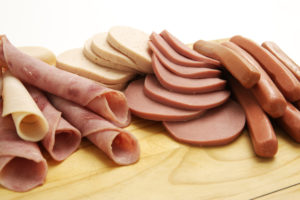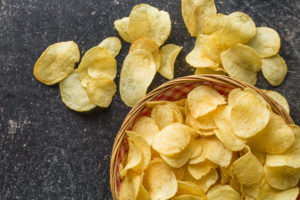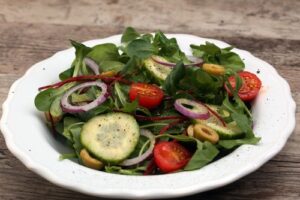
Have you noticed tingling or numbness in your fingers? Do you sometimes wake up at night due to intense pain in your hands? Are you spending a lot of time typing on a computer or scrolling on a phone, only to realize that your hands are cramped or weak at the end of the day? If so, you may be experiencing carpal tunnel syndrome.
What Is Carpal Tunnel Syndrome?
Carpal tunnel syndrome is a painful condition that mainly presents as hand pain, tingling, and weakness in the hands and wrists. It occurs due to pressure on the median nerve, which runs up your arm and to your shoulder. Certain lifestyle habits, such as posture while working at a computer, can lead to carpal tunnel. However, with proper treatment, this condition is possible to manage. Diet changes recommended by medical professionals can also provide relief, such as AICA, a group of neurologists in Tucker.
Interesting Facts About Carpal Tunnel
Carpal tunnel syndrome most often affects people between the ages of 40 and 60, although onset can happen at any time.
Carpal tunnel syndrome is one of the most common hand-related conditions that may end in surgery. The surgery for this condition is called carpal tunnel release.
The condition is estimated to affect between one to five percent of the population.
Carpal tunnel syndrome is a progressive condition, which means that it may worsen without proper treatment.
Women are three times more likely to develop this syndrome than men.
This syndrome is called carpal tunnel syndrome because it develops in the carpal tunnel, which is a canal within the wrist that allows the median nerve to extend to your forearm and fingers. It is surrounded by tissues and the wrist bones.
Certain foods can help you avoid or find relief from carpal tunnel syndrome.
Symptoms & Causes of Carpal Tunnel Syndrome
Carpal tunnel syndrome is related to the nervous system, which is why neurologists in Tucker at AICA Chamblee Tucker are able to help you manage it. When you have carpal tunnel syndrome, you may experience one or more of the following symptoms:
- Weakness in one or both of your hands, especially when attempting to grip objects
- Pain or numbness in one or both of your hands, especially in your fingers; this can get worse at night and may wake you from sleep
- Tingling or “pins and needles” sensations in your fingers
- Swollen fingers
These symptoms may be attributed to some other conditions. Always check with your doctor for an accurate diagnosis.
Risk Factors of Carpal Tunnel
Carpal tunnel syndrome is caused by pressure on the median nerve. However, there is no one factor that will cause this pressure. There are a number of risk factors, though, that may impact the likelihood of development.
- Frequent, repetitive movements – limiting your time on devices may help, as typing and smartphone scrolling are both common culprits
- Sex – carpal tunnel syndrome is much more likely in women than in men
- Certain pre-existing conditions that cause damage to nerves – this includes diabetes
- Inflammatory conditions, such as rheumatoid arthritis
- Other medical conditions, including menopause, thyroid disorders, kidney failure, and lymphedema
Carpal Tunnel Treatment at Home
Carpal tunnel syndrome is relatively easy to treat at home, as long as you take care of it early and consistently. You can try wearing a splint, using over-the-counter pain medications, and taking a lot of breaks during the workday. Prevention is key. Pay attention to your posture, keep your hands warm, and make sure you are using an ergonomic-friendly mouse and keyboard.
Because inflammation plays such a significant role in carpal tunnel syndrome, it is important to avoid certain foods that can impact the level of inflammation in your body. Cytokines, which are pro-inflammatory proteins, will increase with a poor diet. The cytokine linked to carpal tunnel pain is tumor necrosis factor-alpha (TNFa).
Foods to Avoid for Carpal Tunnel
Refined Starches and Sugars
 These are also known as simple carbohydrates. While not bad for you in moderation, eating too many of these can cause a spike in glucose, which can then cause inflammation. Simple carbohydrates can include foods high in sugar and stripped of important nutrients. In this category, carpal tunnel foods to avoid include:
These are also known as simple carbohydrates. While not bad for you in moderation, eating too many of these can cause a spike in glucose, which can then cause inflammation. Simple carbohydrates can include foods high in sugar and stripped of important nutrients. In this category, carpal tunnel foods to avoid include:
- Sugary breakfast cereals
- White bread
- White flour
- Pasta (try whole grain instead)
- White rice
- Many desserts, including ice cream, cake, pies, cookies, and candy
Saturated and Trans Fats
 Saturated and trans fats have been linked to increases in inflammatory responses, especially in people with elevated body weights. Again, while eating these foods in moderation is fine, foods high in saturated and trans fats should be limited when treating carpal tunnel syndrome at home. These foods to avoid for carpal tunnel syndrome include:
Saturated and trans fats have been linked to increases in inflammatory responses, especially in people with elevated body weights. Again, while eating these foods in moderation is fine, foods high in saturated and trans fats should be limited when treating carpal tunnel syndrome at home. These foods to avoid for carpal tunnel syndrome include:
- Beef and pork
- Processed luncheon meats, including bologna
- Margarine
- Refrigerated dough, such as canned biscuits
- Fried foods, such as french fries
- Nondairy coffee creamers
- Cake icing
Salty Foods
 Salt can cause water retention, which may cause swelling that leads to unwanted pressure on the median nerve. To treat carpal tunnel at home, avoid or limit high-sodium and high-salt foods. Processed and packaged foods are special culprits in this area. Consider limiting consumption of foods like potato chips, cheese crackers, boxed potato casseroles, and dried meats. You should also limit the amount of table salt you add to food while cooking or look for low-sodium alternatives to your ingredients.
Salt can cause water retention, which may cause swelling that leads to unwanted pressure on the median nerve. To treat carpal tunnel at home, avoid or limit high-sodium and high-salt foods. Processed and packaged foods are special culprits in this area. Consider limiting consumption of foods like potato chips, cheese crackers, boxed potato casseroles, and dried meats. You should also limit the amount of table salt you add to food while cooking or look for low-sodium alternatives to your ingredients.
Alcohol
 Drinking too much alcohol can also increase the level of inflammation in your body. Long-term excessive drinking is linked to a heightened likelihood of developing carpal tunnel syndrome.
Drinking too much alcohol can also increase the level of inflammation in your body. Long-term excessive drinking is linked to a heightened likelihood of developing carpal tunnel syndrome.
Beneficial Foods for Carpal Tunnel Syndrome
 Some foods help reduce inflammation or otherwise help you treat carpal tunnel syndrome symptoms. Look for foods rich in antioxidants, vitamin B6, and omega-3 fatty acids. You could try bell peppers, spinach, carrots, tomatoes, and leafy greens. Salmon and walnuts provide protein as well as the necessary nutrients for providing relief from carpal tunnel syndrome. Finally, turmeric is recommended as a food for carpal tunnel treatment because it carries an anti-inflammatory chemical called curcumin. The properties of curcumin are even stronger when combined with other spices, such as black pepper or ginger.
Some foods help reduce inflammation or otherwise help you treat carpal tunnel syndrome symptoms. Look for foods rich in antioxidants, vitamin B6, and omega-3 fatty acids. You could try bell peppers, spinach, carrots, tomatoes, and leafy greens. Salmon and walnuts provide protein as well as the necessary nutrients for providing relief from carpal tunnel syndrome. Finally, turmeric is recommended as a food for carpal tunnel treatment because it carries an anti-inflammatory chemical called curcumin. The properties of curcumin are even stronger when combined with other spices, such as black pepper or ginger.
References
- Carpal Tunnel Syndrome by American College of Rheumatology
- Carpal Tunnel Syndrome – Symptoms and Causes – Mayo Clinic
- Johns Hopkins Medicine – Carpal Tunnel Syndrome
- Carpal Tunnel Syndrome: A Review of the Recent Literature
- Healthline: Sugar and Inflammation
